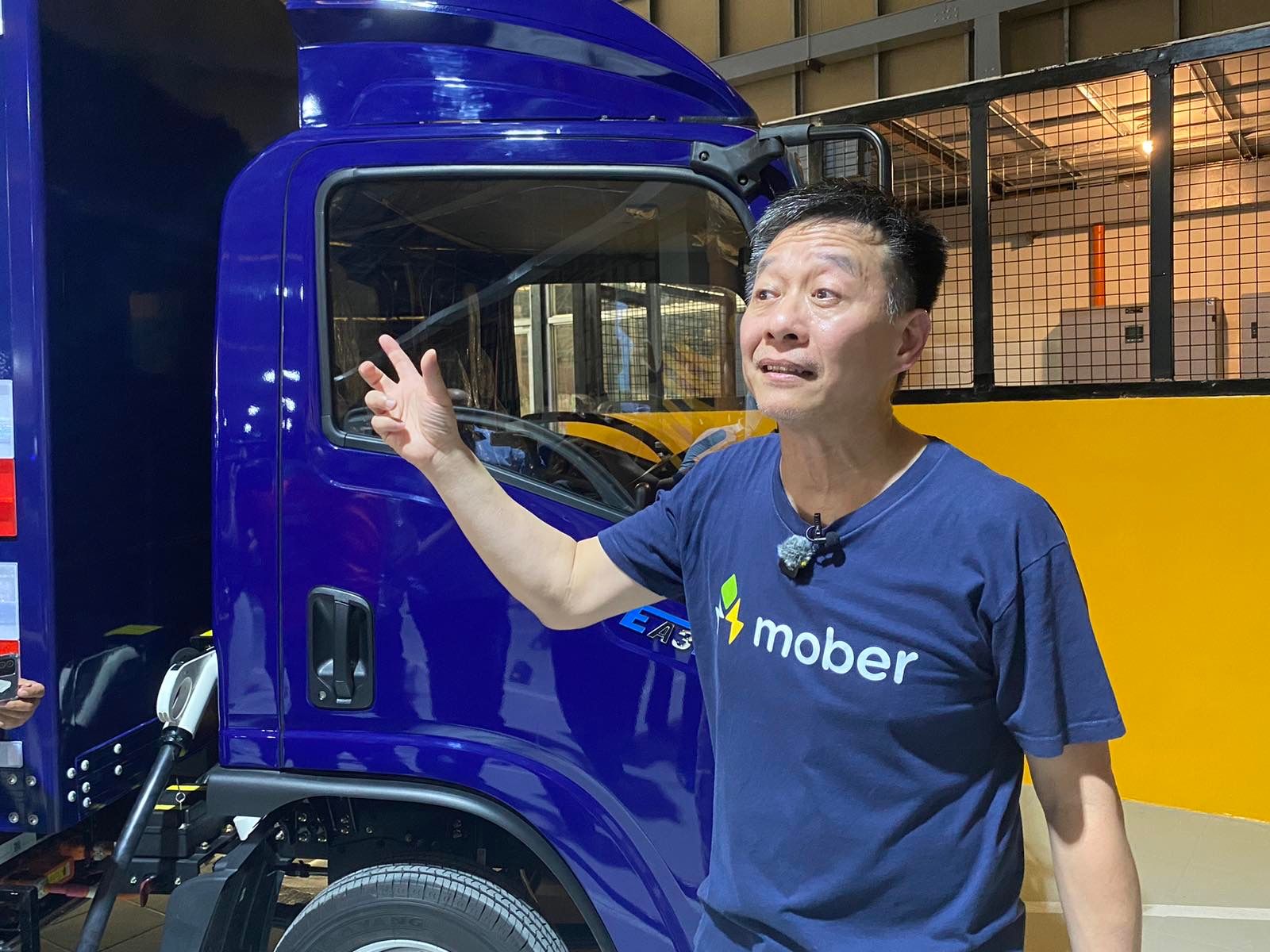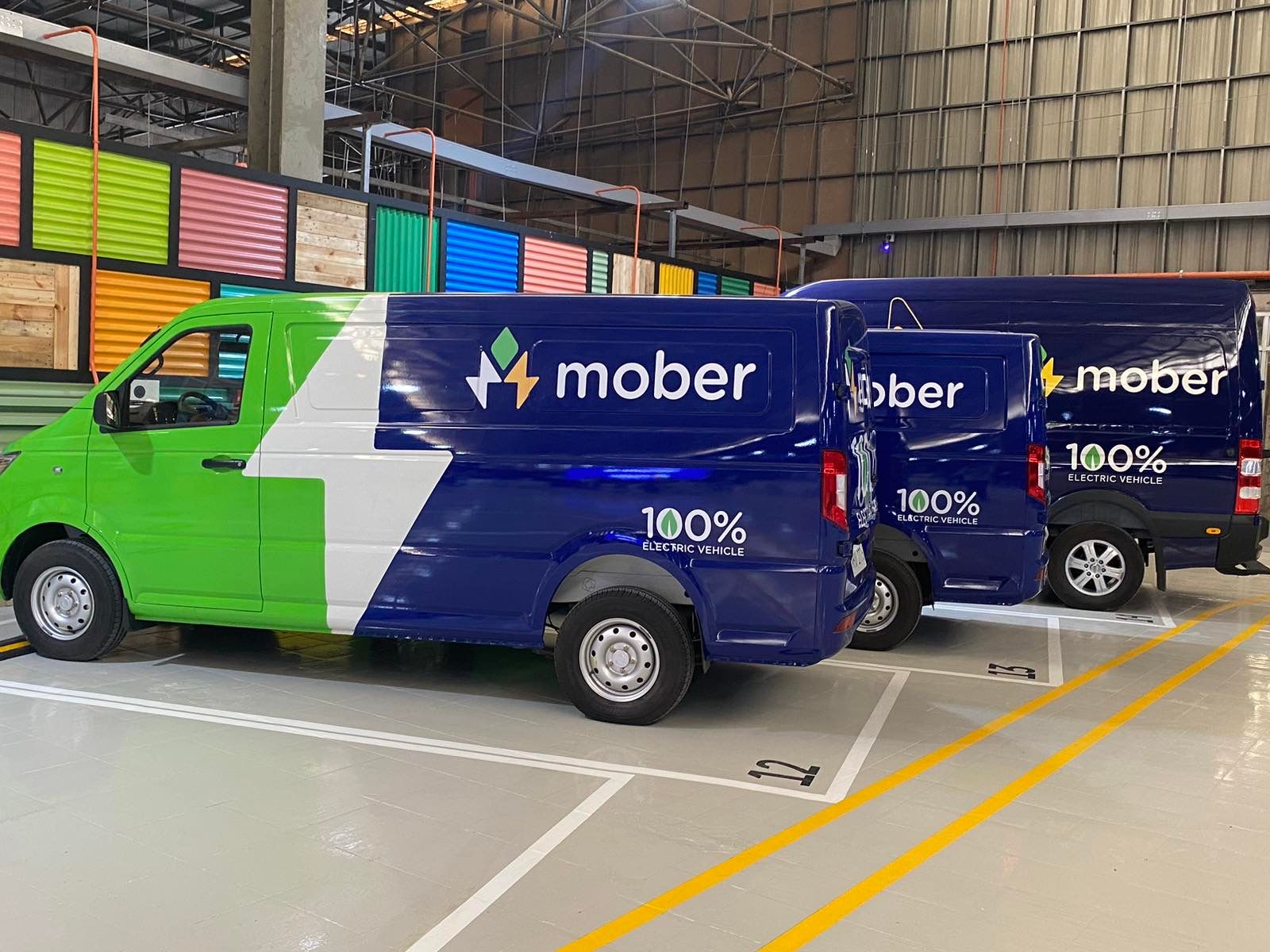
Green logistics startup Mober unveiled on Monday, March 10, the country’s largest commercial charging hub, designed to meet the growing demand of electric vehicles (EVs) in logistics operations.
Mober Founder and Chief Executive Officer Dennis Ng said the launch of Central Charge is part of the company’s goal to position the Philippines as a leader in sustainable logistics.
“Central Charge demonstrates our vision to pave the way for a cleaner, more efficient future for our clients and solidify the Philippines’ place at the forefront of sustainable logistics in Southeast Asia,” said Ng.
Located at HK Sun Plaza along D. Macapagal Avenue in Pasay City, Central Charge covers 3,000 square meters (sqm) with a 56-port capacity that will serve Mober's mixed fleet of e-vans and e-trucks.
The facility will have a structured three-shift system, which can allow the charging of up to 200 EV trucks daily, ensuring round-the-clock logistics operations.
Mober invested ₱14 million for the facility, about ₱9 million of which were allocated to the electricity infrastructure that carries 50 7W DC chargers and two 60 kWh fast-charging units.
As part of its sustainability strategy, the company is exploring the prospect of adding solar photovoltaic (PV) panels and a 500-kWh battery energy storage system (BESS) at Central Charge.
“Central Charge is not just an infrastructure investment, but it’s a strategic step to meet the growing demand for eco-friendly delivery solutions while maintaining our zero-emission commitment,” Ng said.

Mober Founder and CEO Dennis Ng (Dexter Barro II/MANILA BULLETIN)
The facility is strategically located near Metro Manila’s key commercial areas to ensure seamless mid- and last-mile delivery for clients such as IKEA, Nestlé Philippines, and Maersk.
With its green initiative, Mober’s roster of clients primarily includes businesses that intend to decarbonize their delivery processes and companies that have global net-zero commitments.
Ng said IKEA, in particular, will benefit from the facility as a client of Mober in delivering furniture and other products.
When asked about the prospect of walk-in clients that would want their EVs charged, Ng said Central Charge will be limited to logistics needs given its size.
However, he said Mober is planning to build two more charging hubs within the year that may offer personal EV charging aside from commercial needs.
In Southern Luzon, they are looking to build a facility in Laguna, while they are exploring Bulacan or Pampanga to construct the Northern Luzon hub.
He said these properties would be around 6,000 to 10,000 sqm, with the company eyeing significant investments.
Established in 2015 as a traditional delivery application, Mober has since transitioned to become the leading green logistics delivery provider in the Philippines.
“We just want to wait until such time that the EV is rampant, then we do the app again. But for now, we focus on the companies who has a net zero goal,” Ng told reporters.

Mober’s fleet of EV trucks (Dexter Barro II/MANILA BULLETIN)
The company currently has a fleet of over 200 EV trucks. Ng said their goal is to expand to 500 EVs by the end of next year, if they receive the proper financing.
Last year, BDO Unibank Inc. was tapped by Mober to finance its acquisition of 60 EV trucks to expand its commercial fleet.
Ng said right now they are looking for “somebody who has the appetite” to fulfill Mober’s goal of a 500-strong fleet.
He noted that financing is a particular concern since banks are “still not ready” to finance commercial EV.
Ideally, he said Mober should have a fleet of around 1,600 units in the next four years.